STAKEHOLDER INTERVIEWSPerspectives from 15 global health leaders on GHIT's catalytic role and
Japan's transformational contributions to global health R&D
FUNDING
03
Prof. Stephen Caddick
Director, Innovations Division,
Wellcome Trust
“The aims and aspirations of the GHIT portfolio of grant investments line up perfectly with our interests at the Wellcome Trust.”

What first drew you to the global health innovation field?
Throughout my career, I've been an academic, but I've worked closely with business. I've always been interested in taking science through to impact in the real world. There is no greater place to do that than in the global health agenda. What drew me into the area of global health innovation is this desire to take the dreams of science and turn them into the reality of patient benefits.
Could you provide background on the Wellcome Trust for a lay audience?
The Wellcome Trust is a very large, private foundation whose purpose is to support science and turn it into improvements into human health. We were established in the 1930s and are headquartered in the UK. Today, we're one of the largest private foundation in the world. We support an extraordinarily diverse range of activities, but our primary work is in supporting long-term blue sky* biomedical science. That then translates into human health through innovation, through public and cultural engagement.
*Blue sky science is scientific research in domains where "real-world" applications are not immediately apparent. It has been defined as "curiosity-driven science."
What makes the Wellcome Trust unique amongst science and innovation funders?
There are several elements that make the Wellcome Trust unusual. One is our scale. We distribute around a billion British Pounds a year in funding.
The second is the depth and breadth of our research. We support thousands and thousands of researchers. We draw on that expertise and knowledge and bring people together in a way that allows us to focus on contemporary problems of human health. We do this from an extraordinarily strong evidence-based.
Third, we are independent and private. We can pursue long-term goals that would be very difficult for other organizations to focus on. We could take a 50-year view or we can take a five year view. There's a small group who are responsible for the stewardship of the organization.
“GHIT is definitely one of these strategic investments; it delivers an enormous return.”
The Wellcome Trust joined GHIT as a funding partner in 2015. How does GHIT fit into the Wellcome Trust's investment strategy?
The aims and aspirations of the GHIT portfolio of grant investments line up perfectly with our interests at the Wellcome Trust. We want to focus on innovations that will make a big difference to people, particularly those in low-resource settings. The GHIT portfolio sits squarely in that. We're completely aligned.
Our strategy is to do three things. First, we want to make a more explicit link between discovery science and the world being a better place through innovation. We think that's a two-way thing. Second, we want to create an effective network of partners who, together, can drive innovation faster to improve human health. Finally, we want to invest in a small number of things that can make a meaningful, tangible impact on human health within 5 to 20 years. GHIT is definitely one of these strategic investments; it delivers an enormous return.
In the GHIT model, everyone wins. Japan wins because it builds on the great strengths that Japan brings to global health. The rest of the world wins because together, we can drive our individual imperatives because we are all aligned. Most importantly, we can more quickly make an impact on human health.
What role has Japan played in changing the global health innovation funding landscape in the 21st century?
Japan has always been very important in terms of innovative science and its commitment to translating that into impact. GHIT is one of the most important Japanese initiatives that I've seen because it's firstly based on the idea of partnership and everyone playing their own key role. Secondly, GHIT enables key institutions to pool their resources in a generous, innovative way. Thirdly, GHIT is focused on public health impact, not financial return on investment.
Japanese science and innovation makes GHIT unique, and it is all the more differentiated because of its focus on very clearly on making a difference to areas which are underserved. GHIT is able to support projects that simply are not commercially viable investment proposals. By focusing on impact, GHIT can take projects, particularly projects addressing infectious diseases for low-resource settings, and help them become financially viable so that they can then be picked up by partners and then driven though to implementation. Time and time again in the portfolio, we can see examples of exactly that.
Importantly, GHIT offers a very unusual opportunity for collaboration—between the Japanese government with pharmaceutical companies, with NGOs, and with private foundations like the Wellcome Trust and Gates Foundation. Together, we can act faster. We can pool our resources to move science more quickly from the research community through to implementation and adoption.
“GHIT's projects are focused on some of the most profound global health problems of today. Its consortium of partners will allow us to make better progress with a greater degree of energy, urgency, and creativity. We are going to solve these problems faster because of the partnerships that GHIT has put together.”
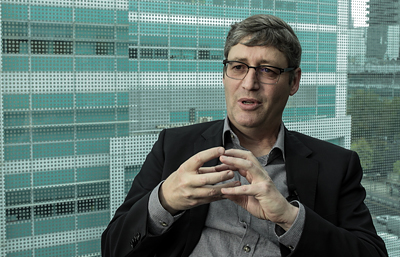
In your opinion, what makes Japanese innovation unique?
Japan is very well-known for producing outstanding, quality science and turning it into real-world innovations that have real-world impact. We think there's a lot to learn from the Japanese scientific culture, the Japanese innovation culture, and the Japanese business culture. GHIT is the perfect partner for us in accessing all of those great assets to help us pursue our aims at Wellcome.
GHIT's projects are focused on some of the most profound global health problems of today. Its consortium of partners will allow us to make better progress with a greater degree of energy, urgency, and creativity. We are going to solve these problems faster because of the partnerships that GHIT has put together.
What do you see as the unique capacity of Japanese pharma?
The Japanese pharmaceutical industry is extraordinarily productive at delivering products that improve human health. The companies have a great understanding of how to translate the great science that comes from Japan. The group of of Japanese pharmaceutical companies that are involved in GHIT are central to its future success.
I think all the life science companies—Japanese and international—that are involved in GHIT and more broadly in global health really understand all the different elements of the global scientific culture. That matters because the early translation of promising findings requires a cultural understanding.
Being able to properly mine the scientific community in order to find those gems is similar to mining for diamonds or gold. In other words, you have all these assets and you know the answers you're looking for are there, but you have to find them - and then invest in cutting and polishing. Then you have to find ways to get them in front of the right people in order to ensure that they meet their market.
Pharmaceutical companies are extraordinarily well placed to understand how different groups of people will respond to different types of products and intervention, and Japanese companies in particular play a key role in that.
What is the role of pharmaceutical companies and academia in translating science into global health impact?
I think the sands have shifted in science and innovation over the last few decades. There's a greater enthusiasm and energy to go beyond the journal page. When I first started as a research-based academic, the endpoint was largely a great paper in a great journal. Now, scientists look beyond that. People want their own company and to make a real difference to human health, to the problems that we face—be they food security, in climate, in energy, etc. There's a real enthusiasm to now embrace translation and innovation as a central part of an academic agenda.
Translating scientific dreams into something beyond the page of a journal requires purposeful project management, high levels of investment, and ruthless decision-making. All of those are things may be present in the academic community, but they're much more common in the private sector.
Being an academic is primarily about discovering something unexpected. The focus is on the beauty of the problem. Often, the greatest, most unexpected discoveries come from that blue sky research. When you're trying to go from A to B, in academia, it's easy to become distracted by a compelling, albeit non-critical path. Industry, by contrast, is particularly good at saying, "If we want to get here, this is the critical part. This is the line we need to take."
Different scientific cultures in the UK, US, Europe, and Asia have different starting points for translation. I think the pharmaceutical companies actually understand this extremely well and are able to then nuance their project management style and their investment style in order to get the best out of the academic community.
We shouldn't forget the role of organizations like the Gates Foundation and Wellcome Trust, or the central role of government.
“GHIT's model is one that with some modification is likely to be important for all of the major complex challenges that society faces now in the next decade, in 50 years, 100 years.”
What do you see as the key role of government in global health science and innovation?
Seeing global health as a global good and not simply the problem of one particular group of people to a large extent has to be driven by governments. That provides an impetus for people to work together. It also provides an impetus for governments to work together because disease knows no geographic boundaries.
It's wonderful to see GHIT being supported so strongly by the Japanese government, which has played such a key role in GHIT's establishment. From my perspective, engagement, funding, and political support from governments are all very important. Global health is a global problem. It's not simply a problem for one group of people in a particular part of the world.
How do you think young people perceive the science and innovation space—particularly as it relates to global health?
There is no more compelling proposition to a young person than the promise of improving millions of people's lives and giving them a better quality of life. It takes hard work, tenacity, imagination, and creativity, but there is nothing more exciting. We need the smartest minds that most diverse group of people we can get to make that a reality.
We need to set realistic expectations in this era of instant gratification: when someone discovers something scientific with real promise that there is a long period of time in turning that into something that has an impact on human health. We also need to make that more glamorous. We need to make biotech, global health, life science, entrepreneur and innovation a bit cooler than it is now.
Do you think the GHIT business model could be applied to other sectors?
GHIT's model is one that with some modification is likely to be important for all of the major complex challenges that society faces now in the next decade, in 50 years, 100 years. Global health is one of the major challenges of our time, but there are others, such as security, agriculture, water, and climate. While great progress can made through a commercially driven imperative, very often the potential impact is so profound on human kind that it needs a commercial and a public approach. GHIT is a sweet spot of that.
We have to collaborate and use the individual strengths of individual parts of our society if we're going to work together to solve these complex problems.
The affiliations and positions listed in this interview are at the time of publication of the interview in 2017.

- Biography
- Stephen Caddick, PhD, is Director of the Innovations Division at the Wellcome Trust. He is also Professor of Chemical Biology at University College London (UCL). Previously, he was Vice Provost (Enterprise & London) for UCL and led UCL's activities in enterprise and innovation, among other leadership roles. He is a member of the Scientific Advisory Board for MRC Technology and Chair of the League of European Research Universities Enterprise and Innovation Community. He played an important role in the development of the chemical biology strategy and facilities within the Francis Crick Institute and is co-founder of Synthetic Pages – an open access website – and Thiologics – an antibody-drug conjugate biotech spinout company.
STAKEHOLDER INTERVIEWSARCHIVES
FUNDING
-
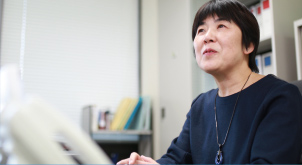
01
Dr. Naoko YamamotoSenior Assistant Minister for Global Health,
Ministry of Health, Labour and Welfare
#
-
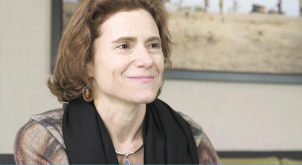
02
Dr. Hannah KettlerSenior Program Officer, Life Science Partnerships
Global Health Program, Office of the President
Bill & Melinda Gates Foundation
#
-

03
Prof. Stephen CaddickDirector, Innovations Division,
Wellcome Trust
#
DISCOVERY
-
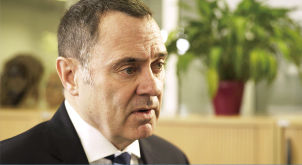
01
Dr. David ReddyCEO
Medicines for Malaria Venture (MMV)
#
-
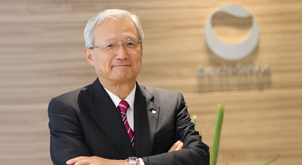
02
Mr. George NakayamaRepresentative Director,
Chairman and CEO
Daiichi Sankyo Company, Limited
#
-
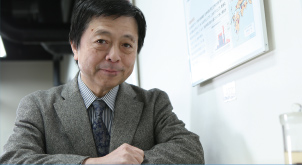
03
Prof. Kiyoshi KitaProfessor Emeritus, The University of Tokyo
Professor and Dean, Nagasaki University School of Tropical Medicine and Global Health
#
DEVELOPMENT
-
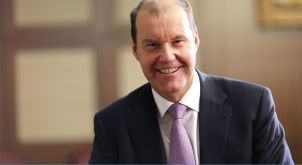
01
Mr. Christophe WeberRepresentative Director, President and CEO
Takeda Pharmaceutical Company Limited
#
-
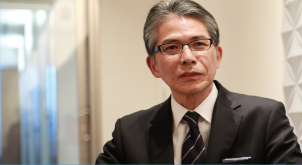
02
Mr. Yoshihiko HatanakaRepresentative Director,
President and CEO
Astellas Pharma Inc.
#
-
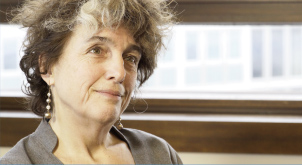
03
Dr. Nathalie Strub WourgaftMedical Director
Drugs for Neglected Diseases initiative (DNDi)
#
ACCESS
-

01
Dr. Jayasree K. IyerExecutive Director
Access to Medicine Foundation
#
-
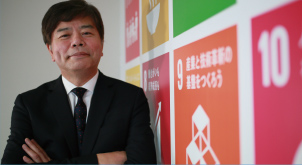
02
Mr. Tetsuo KondoDirector
United Nations Development Programme (UNDP)
Representation Office in Tokyo
#
-
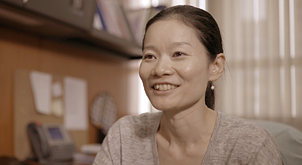
03
Dr. Aya YajimaTechnical Officer
Malaria, other Vectorborne and Parasitic Diseases Unit
Division of Communicable Diseases
World Health Organization Western Pacific Regional Office
#
POLICY
-
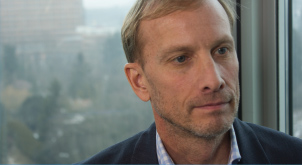
01
Dr. Mark DybulFormer Executive Director
The Global Fund to Fight AIDS,
Tuberculosis and Malaria
#
-
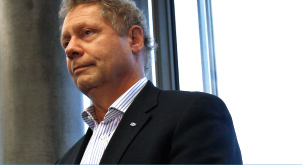
02
Dr. Seth BerkleyCEO
Gavi, the Vaccine Alliance
#
-
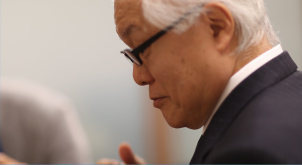
03
Hon. Prof. Keizo TakemiMember of the House of Councillors of Japan
Chairman, Special Committee on Global Health Strategy
of the Liberal Democratic Party's Policy
#

